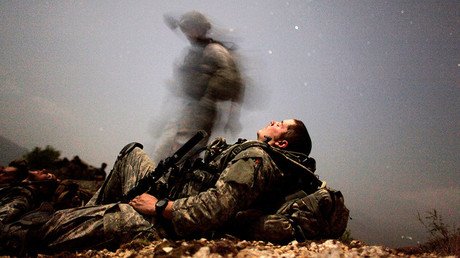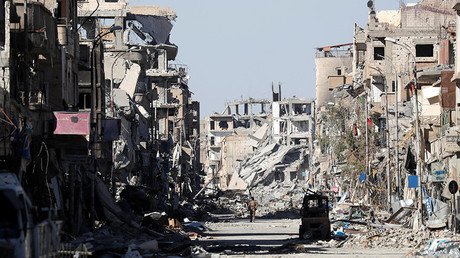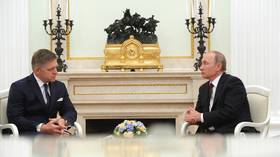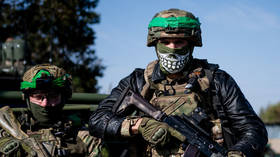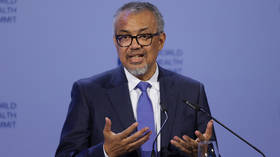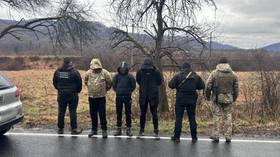Afghan-style West Africa invasion played out in US war college drill
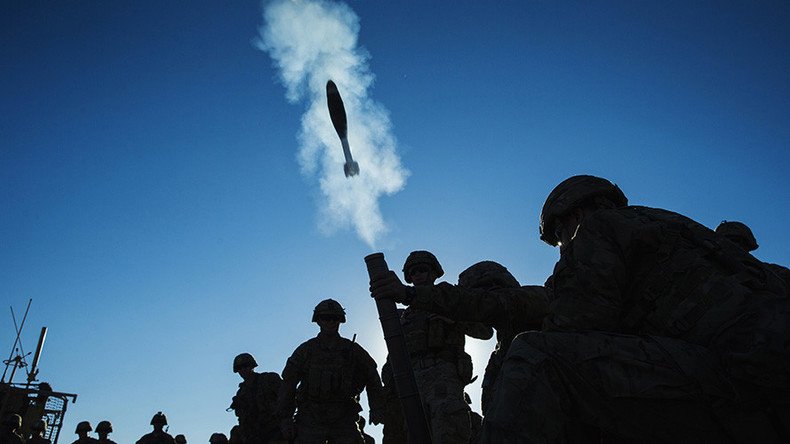
A simulation game for US war-college students prepared participants for an invasion of West Africa in response to a terrorist attack on US soil, investigative news website The Intercept reports.
The hypothetical scenario involved a populist president reacting to a domestic terrorist attack by starting a war in West Africa. The war is touted as a three-year operation but turns into a protracted quagmire, echoing US involvement in Afghanistan after 2001.
The game was conducted last year during a series of exercises culminating in a five-day on-site session at the Air Force Wargaming Institute at Maxwell Air Force Base in Alabama, according to material released under the Freedom of Information Act.
Called Joint Land, Air and Sea Strategic Special Program (JLASS-SP), it was held for 33rd time and brought together 148 students from seven institutes that prepare America’s future military leaders.
The JLASS-SP scenario details imaginary events during the term of Karl Maxwell McGraw, a factious independent Arizona politician who is elected to the office of president in 2020 on a populist platform.
His presidency is beset by a series of crises, including a devastating cyberattack on the Susquehanna nuclear power plant in Berwick, Pennsylvania in February 2021, an economic crisis in Asia, the rise of nationalism and right-wing extremism, as well as empowerment of an Islamist group called Al-Qaeda in the Islamic Maghreb (AQIM) in West Africa.
By 2021, AQIM has an estimated 38,000 fighters spread throughout Algeria, Mali, Mauritania, and Niger; and enough experience and clout to stage high-profile terrorist attacks. They target the Canadian Embassy in Mauritania’s capital Nouakchott, killing 135 people including the Canadian ambassador and his staff.
Another happens in New York and involves two trucks loaded with explosives, which the terrorists plan to detonate at high-profile targets in Manhattan. The plan goes wrong, and the bombs are instead triggered at both ends of the Lincoln Tunnel during morning rush hour, resulting in 435 deaths.
President McGraw’s response is to join forces with Canada and launch Operation Desert Strike in Mauritania with the nation’s consent. A military force lands in West Africa in June 2023 for what is promised to be a three-year “well-planned, rapid, and efficient operation” to defeat AQIM.
Three years later, the situation has been anything but victorious for Washington, and insurgency attacks have increased dramatically by 2025, according to fictitious reports.
On Christmas Eve, eight coalition troops are killed in a bombing outside a Canadian base. Seven Americans are killed in an attack on a US military convoy. In an ambush, one Green Beret is killed and another one reportedly captured by the militants.
With no end in sight, the coalition crumbles. Canada announces that it is pulling out troops in April 2026, while other NATO allies rebuff America’s call for additional support.
A plan to hand over responsibility for security in the region to the African Union (AU) in November 2025 fails as AU members demand more money and remain reluctant to provide soldiers.
Instead of 70,000 US soldiers returning home by December 2026 deadline, the American commander of the operation seeks to prolong it for at least 12 months and deploy even more troops.
The exercise scenario ended before AFRICOM or President McGraw could respond to that call, but The Intercept believes it knows what would have transpired.
“Given the range of responses over the last decade-plus to setbacks in Afghanistan and Iraq, Syria and Somalia, Yemen and Libya, you don’t need a crystal ball, or to attend a US military war college, to have a pretty good idea of President McGraw’s decision,” the report said.
“It seems safe to assume that America’s fictitious war in West Africa will continue into the 2030s, just as its wars of the 2000s have staggered into the late 2010s.”
